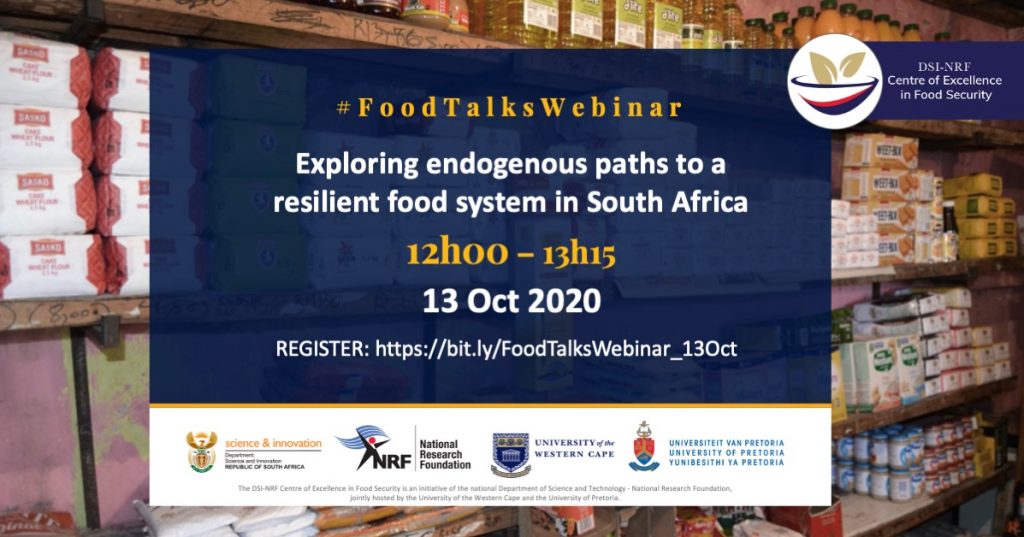Time: 12h00 - 13h15
Venue: Live on Zoom & Facebook
Click to Register
This #FoodTalks webinar explores endogenous paths to a resilient food system. Hosted by the DSI-NRF Centre of Excellence in Food Security (CoE-FS) and the Department of Anthropology and Archaeology at the University of Pretoria (UP), it is the first in a series of webinars commemorating World Food Day 2020.
In this webinar taking place on 13 October 2020 at 12h00, we will explore what we can learn and benefit from our food history and indigenous foods in Southern Africa. This is an important starting point for discussing and finding endogenous paths to building sustainable and regenerative food systems that can achieve food and nutrition security in the region today.
The webinar will have inputs based on ongoing research work in the two very different disciplines of Archaeology and Food Science.
Panellists:
Prof Naushad Emmambux – Department of Consumer and Food Sciences at UP and research leader for food processing at the CoE-FS. Professor Emmambux will present his team’s research on creating palatable and nutritious foods based on indigenous plants.
Dr Xander Antonites – Department of Anthropology and Archaeology at the University of Pretoria. Dr Antonites’ research focuses on early farmers in Southern Africa and will present on the foods and organisation around food of our ancestors in the region.
Facilitator:
Kefilwe Rammutla – An archaeologist working in Southern Africa on prehistoric trade and exchange networks, pastoral communities, and human and animal interaction. She lectures at UP and is completing her PhD at Yale University.
Upcoming Events
Our GOALS
We recognise that producers, processors, distributors and consumers are incorporated into the food system under varying terms and returns. We also recognise the economic, social, human and environmental health impacts associated with food security. Therefore our goal is to conduct research, build capacity and disseminate findings that will promote a sustainable food system in South Africa.
Our MISSION
Our research is concerned with the scale, nature, causes and consequences of food insecurity in South Africa and elsewhere on the African continent. Thus our mission is to investigate products, technologies, processes and policies that can reduce food insecurity and mitigate its negative outcomes. We seek to make a difference to food security by linking innovative science with critical enquiry.




